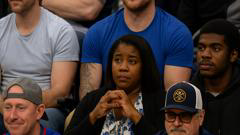Why did Michael Jordan return to the NBA with the Washington Wizards, and what did those final seasons mean for his legacy?

The Return: Shadows and Spotlight
In 2001, whispers filled the NBA: was it hubris or heart drawing Jordan back? By then, the Chicago hero was part-owner and president of basketball operations for the struggling Washington Wizards.
He announced his comeback in September, stirring hope in a city eager for relevance. Per NBA.com, ticket sales doubled overnight—a king’s ransom for fleeting glory.
The Toll of Time
Gone was the gravity-defying Airness of old. Instead, fans saw a craftsman: fadeaways, mid-range jumpers, fingers taped, knees braced. Jordan averaged over 20 points per game—still among the league’s best scorers.
Yet the Wizards missed the playoffs both years. Analysts wondered aloud: did the Wizards era dim his legend, or did it reveal something human in the superstar mask?
“Some people want it to happen, some wish it would happen, others make it happen.” — Michael Jordan
Wild, right? Even in defeat, Jordan’s words rang with that old fire.
The Weight of Legacy
According to Forbes (July 2024), Jordan’s box-office pull eclipsed that of entire teams. Merch sales soared. Rookie teammates found themselves under a relentless mentor’s gaze.
But headlines turned: critics questioned his methods, his motives. Was this a last grasp for relevance, or the noble coda of a career obsessed with competition?
The Quiet Reflection
Jordan’s time in Washington offered no storybook ending. Stripped of invincibility, he played on—sharp elbows, sharp tongue, searching for the game’s elusive music once more.
The NBA comeback was never really about the box scores. It was a lesson in restlessness and courage, framed in sweat and twilight jump shots.
Beyond the Scoreboard
Perhaps that is what endures most: not his points, but his willingness to risk legacy for one more night under harsh arena lights. Classic clutch moment—stepping into the unknown, heart unguarded.
In the fading dusk of his career, Jordan reminded us: even the brightest stars long for their own second sunrise. If that’s not greatness, what is?








Comments